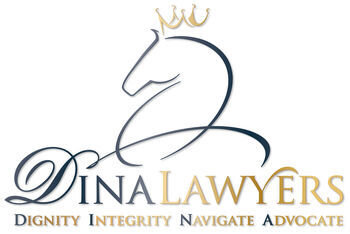Best Employment Benefits & Executive Compensation Lawyers in Sydney
Share your needs with us, get contacted by law firms.
Free. Takes 2 min.
List of the best lawyers in Sydney, Australia
About Employment Benefits & Executive Compensation Law in Sydney, Australia
Employment Benefits & Executive Compensation law in Sydney, Australia involves regulations and legal frameworks that govern the compensation and benefits provided to employees and executives. This area of law covers a wide range of topics, including salary, bonuses, stock options, retirement plans, health benefits, and other incentives. These laws are designed to ensure fair compensation, enhance employee satisfaction, and maintain workplace equality. Sydney, being a major economic hub, has a dynamic corporate landscape where these laws play a crucial role in shaping employment relationships and practices.
Why You May Need a Lawyer
There are various scenarios in which a person may require legal assistance in matters related to Employment Benefits & Executive Compensation:
- Negotiating Employment Contracts: Understanding complex compensation packages and negotiations.
- Dispute Resolution: Addressing conflicts over entitlements, bonuses, or contractual obligations.
- Compliance and Regulatory Issues: Ensuring that benefits and compensation practices adhere to local laws and regulations.
- Termination or Redundancy: Handling severance packages and exiting strategies.
- Equity and Stock Options: Navigating the legalities around stock option grants and vesting schedules.
- Tax Implications: Understanding the tax consequences of various compensation arrangements.
Local Laws Overview
The legal framework governing Employment Benefits & Executive Compensation in Sydney, Australia, is influenced by both commonwealth and state laws. Some key aspects include:
- Fair Work Act 2009: A national statute that sets minimum employment standards and outlines both employers' and employees' rights.
- National Employment Standards (NES): Minimum standards for employment relations, including leave entitlements, work hours, and termination notices.
- Superannuation Guarantee: Employers are required to contribute a minimum percentage of an employee's earnings into a superannuation fund.
- Workplace Gender Equality Act 2012: Ensures equal remuneration and opportunities, promoting gender equity in workplaces.
- Tax Laws: Influence how various benefits and compensation are taxed, impacting take-home pay and effective remuneration strategies.
Frequently Asked Questions
What should I consider before signing an employment contract?
Review the entire compensation package, including base salary, bonuses, stock options, benefits, and any clauses related to termination.
What are stock options, and how do they work?
Stock options give you the right to buy company shares at a predetermined price after a certain period, usually as part of an incentive plan.
How can I ensure my compensation package complies with local laws?
Consult with an employment lawyer to review your package for compliance with the Fair Work Act and the National Employment Standards.
What happens if I suspect my employer is not providing the minimum superannuation guarantee?
Contact the Australian Taxation Office (ATO) for assistance, as they oversee compliance with superannuation laws.
How are severance packages typically structured in Sydney?
Severance packages usually include a combination of payment in lieu of notice, redundancy pay, and any outstanding entitlements such as leave accruals.
Are executive compensation packages public information?
Publicly listed companies are required to disclose executive compensation details in their annual reports, but private company packages may not be publicly available.
What are the tax implications of receiving a large bonus?
Bonuses are typically subject to income tax, and a significant bonus may push you into a higher tax bracket. Consider consulting a tax advisor for detailed implications.
How do workplace benefits affect my overall compensation?
Workplace benefits, such as health insurance or gym memberships, can add significant value to your compensation package beyond base salary.
Can changes in job role affect my current compensation plan?
Yes, changes in roles can affect your compensation. Ensure any modifications to your compensation plan are documented and agreed upon in writing.
What should I do if there's a dispute over my compensation?
Seek advice from a legal professional who specializes in employment law to explore avenues for resolution or litigation if necessary.
Additional Resources
Here are some resources and organizations that can provide further guidance on Employment Benefits & Executive Compensation:
- Fair Work Ombudsman: Provides advice and information on the Fair Work Act and workplace rights.
- Australian Taxation Office (ATO): For inquiries related to superannuation and tax implications.
- Workplace Gender Equality Agency: Offers resources on promoting gender equality in compensation.
- Law Society of New South Wales: Provides a directory to find qualified employment lawyers.
Next Steps
If you need legal assistance with Employment Benefits & Executive Compensation, consider taking the following steps:
- Understand Your Needs: Clearly identify the issues you need legal assistance with, such as contract negotiation or compliance review.
- Research and Consult: Engage with a specialist lawyer in employment law for tailored advice. Consider initial consultations to discuss your situation.
- Document Everything: Keep all relevant documents and communications organized to facilitate a smooth legal process.
- Evaluate Legal Options: Work with your lawyer to explore potential solutions, whether it involves negotiation, mediation, or litigation.
- Proceed Accordingly: Once you have legal guidance, follow through with the agreed strategy to resolve your employment compensation concerns.
Lawzana helps you find the best lawyers and law firms in Sydney through a curated and pre-screened list of qualified legal professionals. Our platform offers rankings and detailed profiles of attorneys and law firms, allowing you to compare based on practice areas, including Employment Benefits & Executive Compensation, experience, and client feedback.
Each profile includes a description of the firm's areas of practice, client reviews, team members and partners, year of establishment, spoken languages, office locations, contact information, social media presence, and any published articles or resources. Most firms on our platform speak English and are experienced in both local and international legal matters.
Get a quote from top-rated law firms in Sydney, Australia — quickly, securely, and without unnecessary hassle.
Disclaimer:
The information provided on this page is for general informational purposes only and does not constitute legal advice. While we strive to ensure the accuracy and relevance of the content, legal information may change over time, and interpretations of the law can vary. You should always consult with a qualified legal professional for advice specific to your situation.
We disclaim all liability for actions taken or not taken based on the content of this page. If you believe any information is incorrect or outdated, please contact us, and we will review and update it where appropriate.

















